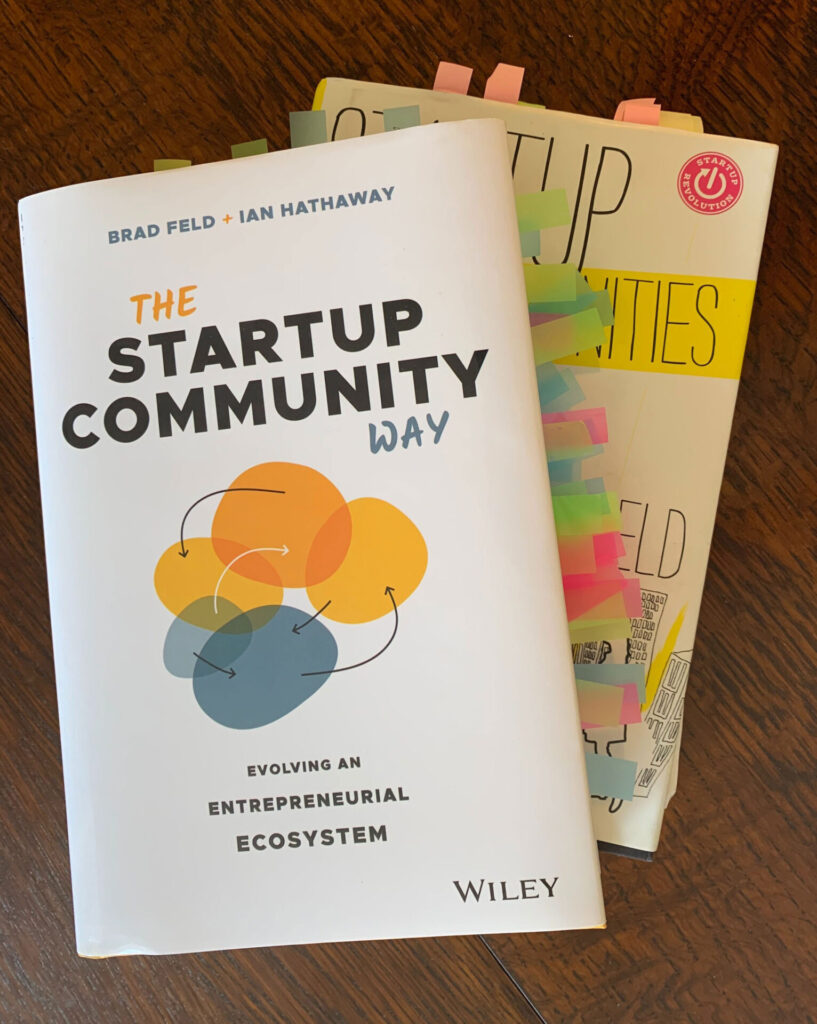Brad Feld’s “The Startup Community Way” is the “New Testament” for Building Startup Communities

To those of us focused on building startup communities and innovation ecosystems, Brad Feld stands out as our unofficial “spiritual leader.” I vividly recall Brad speaking at the Cahill auditorium at Caltech in 2012 just as he released his seminal book “Startup Communities” where he defined his foundational “Boulder Thesis” and the “#givefirst” mindset. His framework and philosophy provided the blueprint for my efforts to better organize and resurrect Pasadena’s startup community which ultimately led to the creation of Innovate Pasadena, an organization that has had a transformative impact on the vibrancy of the East Los Angeles startup community.
Over these past 8 years, I have continued to reference and track Brad’s work (you might also check out his blog) and have had the pleasure to get to know and work with him. Techstars, which Brad co-founded, have become important collaborators of the Alliance here in SoCal (e.g. we helped them launch their space innovation program) and we are fortunate to have Brad on the Alliance’s Advisory Board. Needless to say, I was super excited to get my hands on his latest book “The Startup Community Way (“SCW”). Just as I did with Startup Communities, I closely read the text, furiously highlighting compelling ideas and marking up entire sections (see photo). For those who don’t have the time to read the full 300 pages (50% more than Startup Communities), I thought I would share a few nuggets.
SCW picks up and refines some of the core concepts previously introduced by Startup Communities including the Boulder Thesis. I was particularly keen on two areas. First, it expands the concepts of leaders and feeders to include a third archetype called instigators who are feeders that play influential leadership roles in the startup ecosystem. Second, it introduces the concept of super connectors defined as nodes or dealmakers who can have an outsized influence on the connectivity of the overall system — a role the Alliance aspires to play in SoCal.
There are a number of other new concepts as well:
- A fantastic discussion about “the myth of quantity.” In short, it is more the balance and mixing of ingredients versus just the absolute amount.
- There is a great chapter on The Measurement Trap: “Startup Communities must avoid the trap of letting demand for measurement drive flawed strategies. The most tangible and therefore the easiest factors to measure in a startup community also have the least amount of impact on its performance over the long term.” Sage advice for key stakeholders.
- Finally, like the Alliance, he views diversity and openness as a prerequisite for creative, high impact outcomes.
An essential theme of SCW is the fact that Startup Communities are complex adaptive systems that don’t lend themselves to rigid playbooks. They are much more organic and unpredictable – more like raising a child versus assembling a car.
For those who are familiar with Startup Communities, the foundational tenant is that entrepreneurs must lead the development of startup communities – they have both the legitimacy and temperament. As someone who has spent two decades running and investing in startups, I am comfortable with the unpredictable and dynamic nature of such complex systems. I have come to enjoy running many small experiments and see failure as merely markers on the pathway to success. However, there are others (mostly feeders) who will find such a journey unpleasant and in conflict with their need for predictable short-term outcomes. So I see SCW as a bit of a cautionary tale to those who might be enticed by developing a startup community but have a need for control, predictability, and immediate gratification. As we know, Rome wasn’t built in a day and neither will a vibrant startup community.